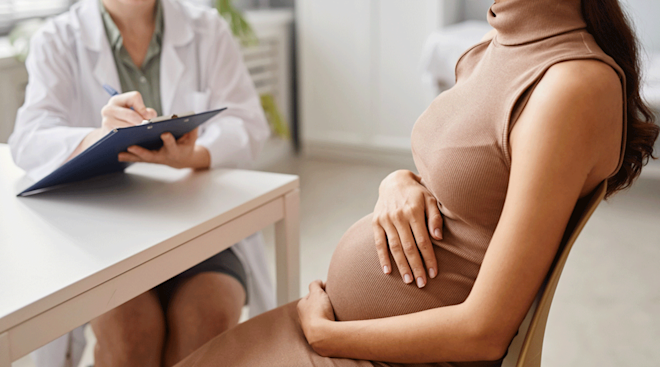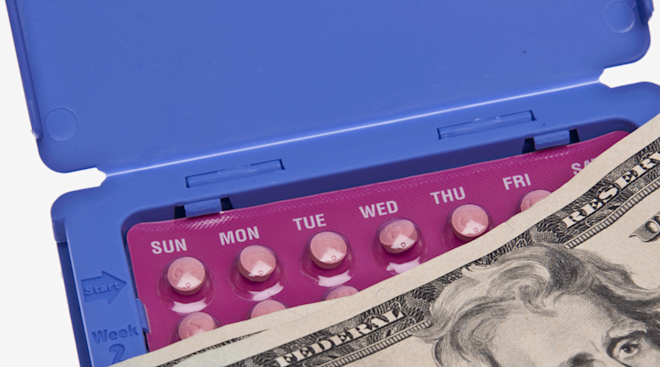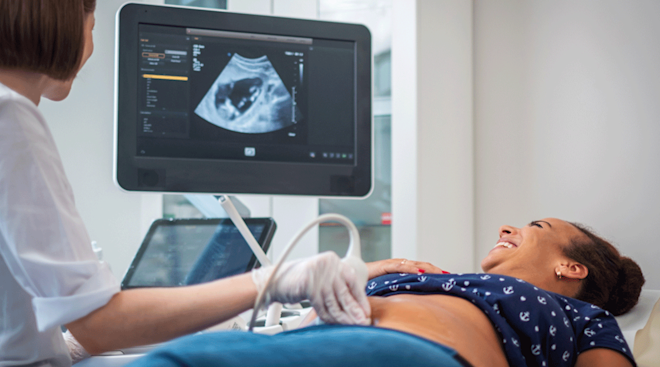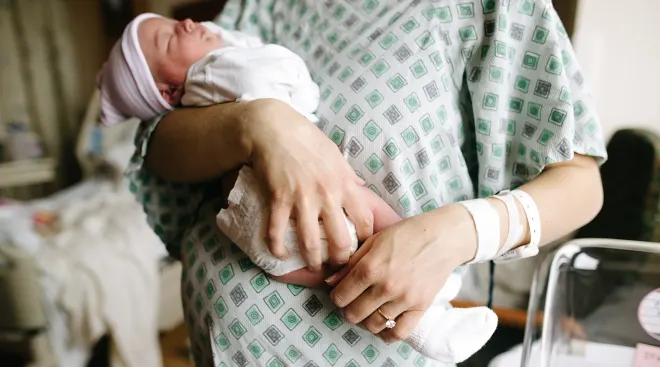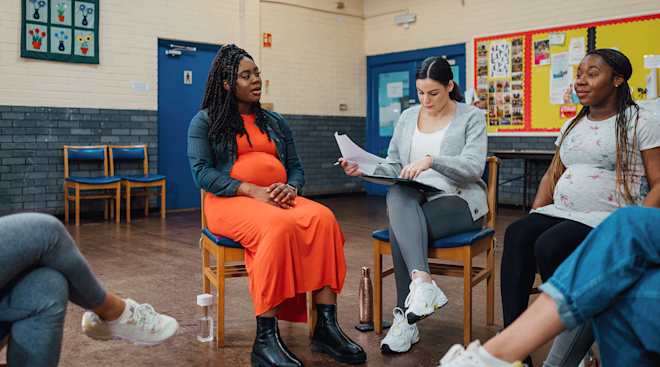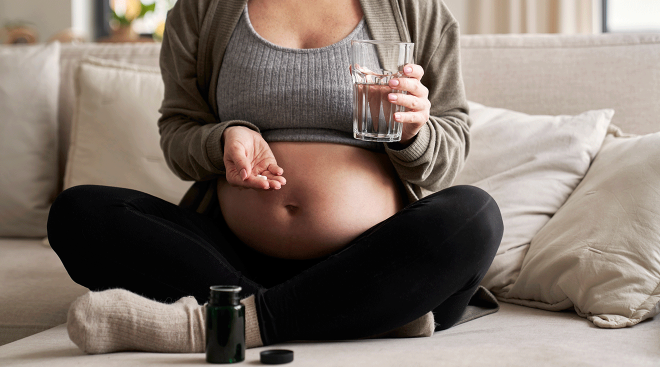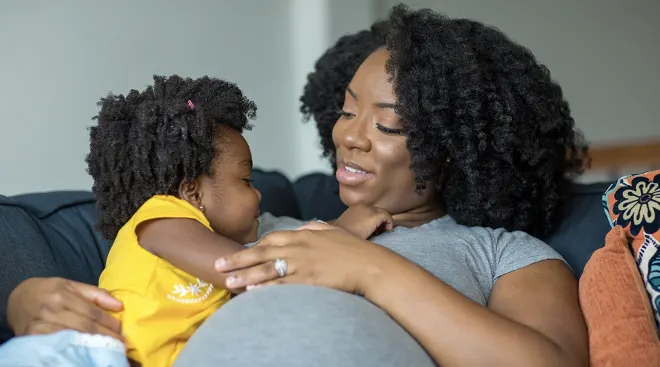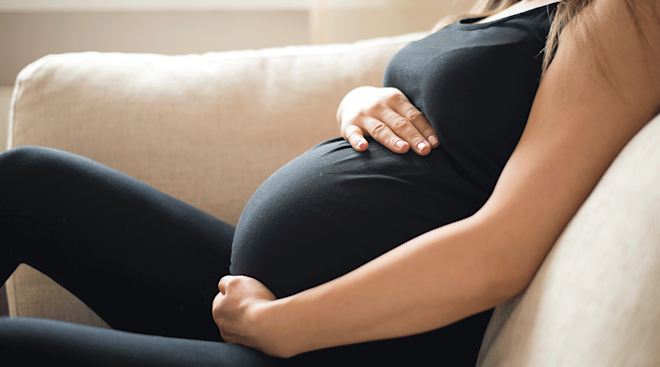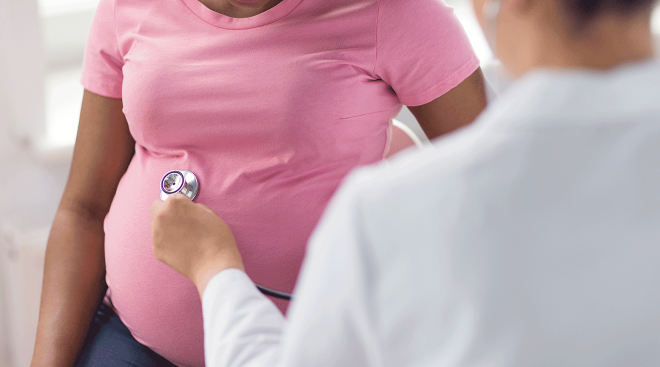What the COVID Vaccine Rollback Could Mean for Parents-To-Be
In a move that could impact many, Health Secretary Robert F. Kennedy Jr. announced on X (formerly Twitter) today that the US Centers for Disease Control and Prevention (CDC) will no longer recommend the COVID-19 vaccine for healthy pregnant women and children. The decision has raised concerns among medical professionals, especially the American College of Obstetricians and Gynecologists (ACOG), which has consistently supported the COVID vaccine’s safety and importance during pregnancy. Below, learn more about what has been proposed, ACOG’s response to the potential rollback and what this means for parents and parents-to-be.
What the Health Secretary Has Proposed and What’s to Come
In his announcement, Kennedy Jr., flanked by Jay Bhattacharya, director of the National Institutes of Health (NIH), and Marty Makary, the commissioner of the Food and Drug Administration (FDA), stated that the COVID vaccine for healthy children and pregnant women has been removed from the CDC’s recommended immunization schedule.
The immunization schedule, which is under the purview of the CDC (not the FDA or NIH), is typically amended through close consultation with experts. The CDC’s Advisory Committee on Immunization Practices (ACIP) is not scheduled to meet until later this month to review the recommendation. In the meantime, the recommendation for the COVID vaccine during pregnancy remains on the CDC website.
Why ACOG Continues to Advocate for the COVID Vaccine During Pregnancy
Not long after the secretary’s announcement, ACOG, a professional organization of American obstetricians and gynecologists, voiced strong opposition to the decision, emphasizing that the science behind the COVID-19 vaccine during pregnancy has not changed.
“ACOG is concerned about and extremely disappointed by the announcement that HHS will no longer recommend COVID-19 vaccination during pregnancy. As ob-gyns who treat patients every day, we have seen firsthand how dangerous COVID-19 infection can be during pregnancy and for newborns who depend on maternal antibodies from the vaccine for protection,” ACOG president Steven J. Fleischman, MD, FACOG, said in a statement.
“It is very clear that COVID-19 infection during pregnancy can be catastrophic and lead to major disability, and it can cause devastating consequences for families. The COVID-19 vaccine is safe during pregnancy, and vaccination can protect our patients and their infants after birth.”
The organization also pointed out that a growing body of evidence demonstrates how vaccination during pregnancy provides protection to infants after birth. Infants under six months of age—who are too young to be vaccinated themselves—are at increased risk of hospitalization from COVID when born to unvaccinated mothers.
In addition to ACOG’s response, the Society for Maternal-Fetal Medicine (SMFM)—representing obstetricians specializing in high-risk pregnancies—also strongly reaffirmed its recommendation that pregnant patients receive the COVID-19 vaccine.
“Pregnancy increases the risk of developing severe illness compared with nonpregnant patients. Maternal immunization remains the best way to reduce maternal, fetal, and infant complications from COVID-19 infection, and is safe to be given at any point during pregnancy,” the organization said in a statement. “Maternal immunization is also associated with improved infant outcomes and decreased complications, including maternal and infant hospitalizations.”
What the Change May Mean for Parents
ACOG and several other medical professionals and experts are concerned that the change in federal recommendations may have far-reaching effects beyond just text on the CDC website. “Following this announcement, we are worried about our patients in the future, who may be less likely to choose vaccination during pregnancy despite the clear and definitive evidence demonstrating its benefit,” ACOG noted in its statement. “And as ob-gyns, we are very concerned about the potential deterioration of vaccine confidence in the future.”
Outside of the erosion of trust in science-backed vaccines, ACOG is concerned that those who wish to be vaccinated or need the COVID vaccine during pregnancy will no longer be able to access it due to changes in insurance coverage. Many insurance companies base their coverage on official CDC vaccine recommendations. What was once a routine, often free vaccine may now cost upward of $200 per dose at pharmacies like CVS if removed from the list of approved vaccinations.
As this shift in recommendations unfolds, it will likely affect the conversations parents will need to have with their ob-gyns and insurance providers. Searching for more information as you prepare to chat with your doctor? Learn more about what vaccines are (and aren’t) recommended during pregnancy and why.
Please note: The Bump and the materials and information it contains are not intended to, and do not constitute, medical or other health advice or diagnosis and should not be used as such. You should always consult with a qualified physician or health professional about your specific circumstances.
Navigate forward to interact with the calendar and select a date. Press the question mark key to get the keyboard shortcuts for changing dates.


































